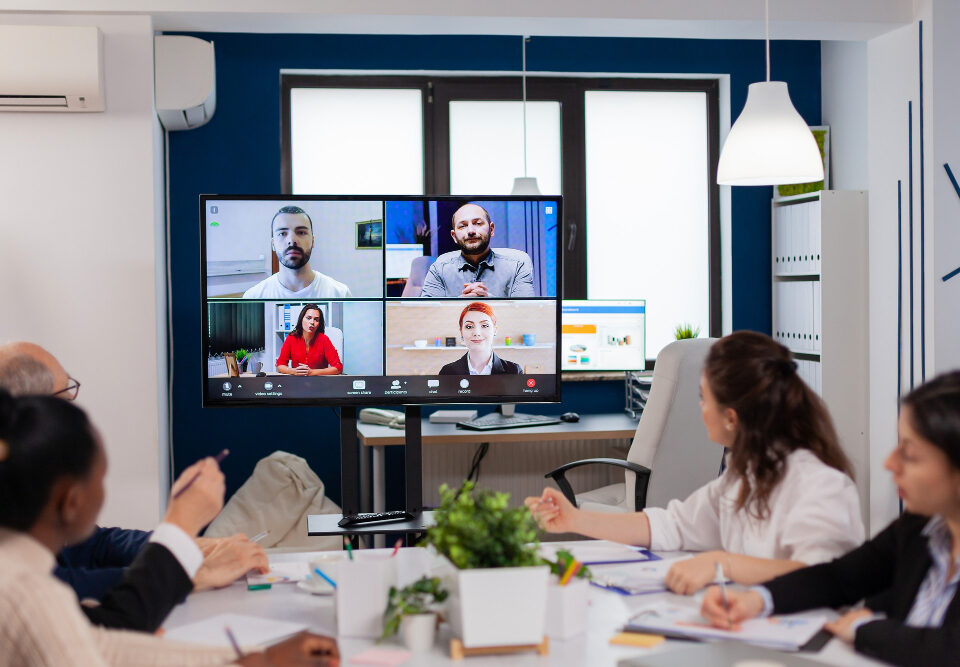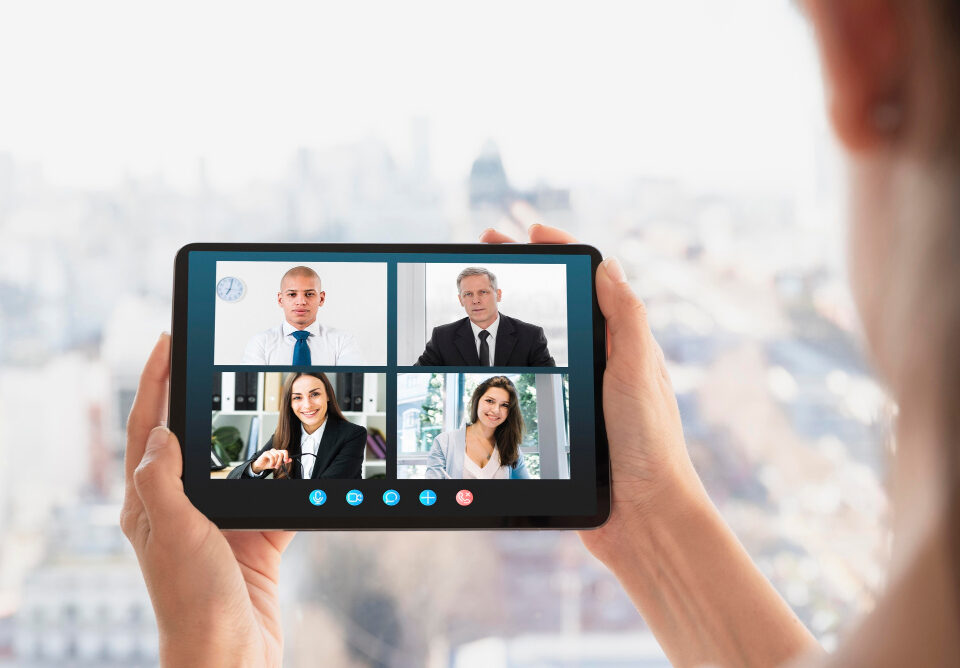- Have any questions?
- +971 4 88 733 70
- sales@datavoiz.com

Microsoft Teams Rooms: Transforming Communication in Meetings
January 28, 2024
Maximizing Business Potential with Video Conferencing
January 30, 2024Introduction:
In this article, we explore the often overlooked yet critical skill of effective meeting room facilitation. Whether leading as a manager, team leader, or project coordinator, mastering facilitation can significantly enhance engagement and decision-making processes. Uncover practical strategies to transform discussions, foster collaboration, and drive superior outcomes for efficient and impactful sessions.
Importance of Effective Meeting Room Facilitation
Effective facilitation is paramount in professional collaboration, shaping discussions and fostering active participation, creativity, and well-informed decisions. Facilitators orchestrate ideas, ensuring each voice is heard, boosting engagement, and catalyzing efficient decision-making processes that drive organizational progress.
Recognizing the facilitator’s crucial role paves the way for enhanced productivity and collaboration. Acting as both conductor and diplomat, facilitators set a precedent for future engagements, fostering an environment where every participant feels valued.
Understanding the Role of a Meeting Facilitator
In meeting dynamics, facilitators play a pivotal role, transforming gatherings into harmonious symphonies of productivity. Their role extends beyond organizing; they act as catalysts, guiding discussions, and molding conversations with patience and empathy. Facilitators effortlessly blend leadership and diplomacy, mediating conflicts, and establishing trust for vibrant collaboration.
Preparing for a Successful Meeting
Immersion in effective facilitation requires meticulous preparation. Define the meeting’s purpose, craft a well-structured agenda, and curate an inviting environment. Meticulous preparation breeds success, laying strong foundations for fruitful meetings.
Setting Clear Objectives and Agendas
Mastering facilitation demands clear objectives and agendas, guiding focused, efficient, and outcome-oriented meetings. Objective setting provides direction, and a well-defined agenda ensures structure, contributing to positive outcomes.
Managing Conflict and Difficult Participants
In facilitation, navigating conflicts and difficult participants is essential. Approach conflicts tactfully, encourage open dialogue, and use active listening to pacify difficult participants. Embrace challenges as opportunities for growth and progress.
Decision-making Techniques for Effective Meetings
In effective meetings, decision-making techniques like the Delphi method, Six Thinking Hats, and nominal group technique empower teams. These methods encourage inclusivity, balanced decisions, and innovative solutions.
Encouraging Participation and Active Listening
Foster engagement by creating a safe space and encouraging open dialogue. Active listening, focusing on words, tone, and body language, builds empathy and trust, unlocking the team’s collective intelligence.
Evaluating and Improving Meeting Facilitation Skills
Continuous self-improvement is key. Solicit feedback, engage in learning opportunities, and reflect on past meetings. Dedication to improvement elevates the quality of sessions and inspires a culture of collaboration.
Conclusion:
In the modern professional landscape, effective meeting room facilitation is a crucial attribute for successful leaders. By mastering this skill, organizations can unlock potential, foster collaboration, and drive impactful decision-making. Embrace your role with confidence, hone your skills through practice and learning, and create spaces for fruitful outcomes in corporate discourse and collective achievement.
For more info:





